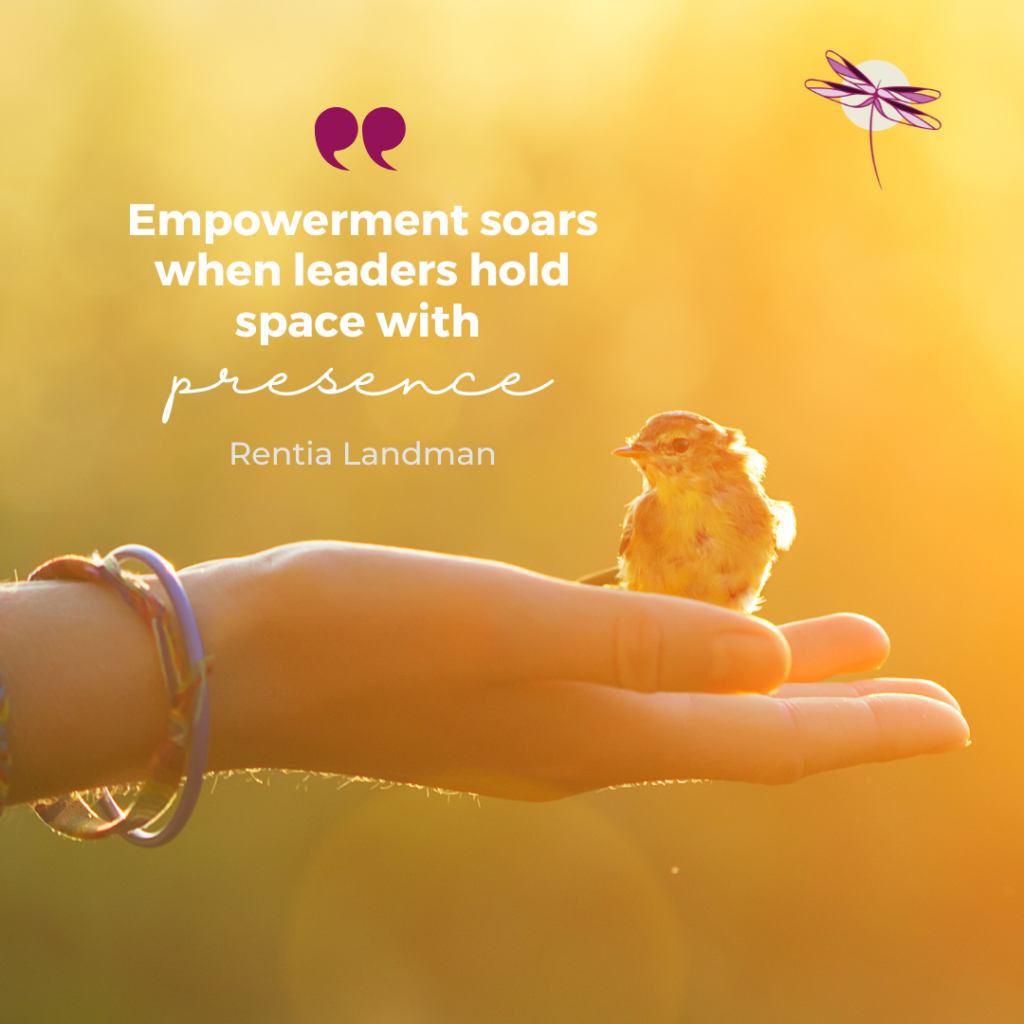Empowerment Through Presence: Lessons from Parenting for Leadership

As parents, we often want to protect our children from mistakes, smooth the path ahead, and sometimes even take the reins. Leaders do the same. The instinct is natural: we want to help, to speed things up, to deliver the best outcomes. But one of the most powerful shifts we can make, both at home and at work, is learning to move from directing to walking alongside.
When advice isn’t what’s needed
I remember a conversation with my daughter before an important decision. My natural instinct was to give her the benefit of my experience: to share what I thought she should do, how she should approach it, even what outcome I believed would be best. Yet something held me back. Instead, I asked her: “What feels tricky about this decision for you?”
In leadership, the same dynamic plays out. When a team member faces a big decision or a moment of doubt, our instinct is to step in with solutions. Yet what they might value most is a leader who creates room for them to process, to explore, and to trust their own thinking.
How presence changes conversations
The temptation to jump in with answers is strong. It feels efficient. It feels like leadership. But quick answers can unintentionally create pressure, signalling that our way is the right way, and that others’ perspectives matter less.
Presence in leadership doesn’t mean stepping back or disengaging. It means showing up differently. Instead of offering strategies and solutions first, we bring listening, curiosity, and encouragement.
We ask questions like:
- “What feels tricky about this decision for you?”
- “Would you like me to just listen today, or would brainstorming together be helpful?”
These small shifts change the dynamic. They move the conversation from dependency to ownership, from pressure to empowerment.
Why presence builds stronger people
When leaders operate from presence, they communicate something powerful: “I trust you.”
That trust builds confidence. It signals that the individual is capable, resourceful, and able to arrive at their own best answers. Over time, it plants the seeds of self-trust that grow into resilience and independence.
Think about the people who have empowered you most in your own journey. Chances are, they weren’t the ones who always gave you answers. They were the ones who asked you thoughtful questions, listened deeply, and stood beside you as you worked things through.
The ripple effect
What starts in one conversation doesn’t stay there. Leaders who show up with presence create cultures of trust. Teams begin to share more openly, take greater ownership of their work, and support each other in the same way they’ve been supported.
It’s a ripple effect, one that transforms not just individuals, but the whole organisation.
A reflection for leaders
This shift, from pressure to presence, is deceptively simple yet profoundly transformative. It turns what might have been a pressure point into an opportunity for growth, resilience, and self-discovery.
Whether in parenting, coaching, or leadership, the principle is the same: empowerment doesn’t come from giving answers, but from creating the conditions for others to find their own.
I invite you to pause and reflect:
- Where are you operating from pressure, and where are you showing up with presence?
- What might change if you leaned more into presence?
Related Posts
The Art of Ending Well
As the year draws to a close, most of us find ourselves in a familiar rhythm,...
Grade 9 Subject Choices – A Test of Trust for Parents
It’s one of those moments that sneaks up on us. One day, we’re packing school...
Post-School Pathways – One Goal, Many Roads
There’s a quiet shift that happens in every home when the final school years...
The Quiet Voice That Shapes Your Potential
I grew up believing that potential was something you either had or didn’t. But...

